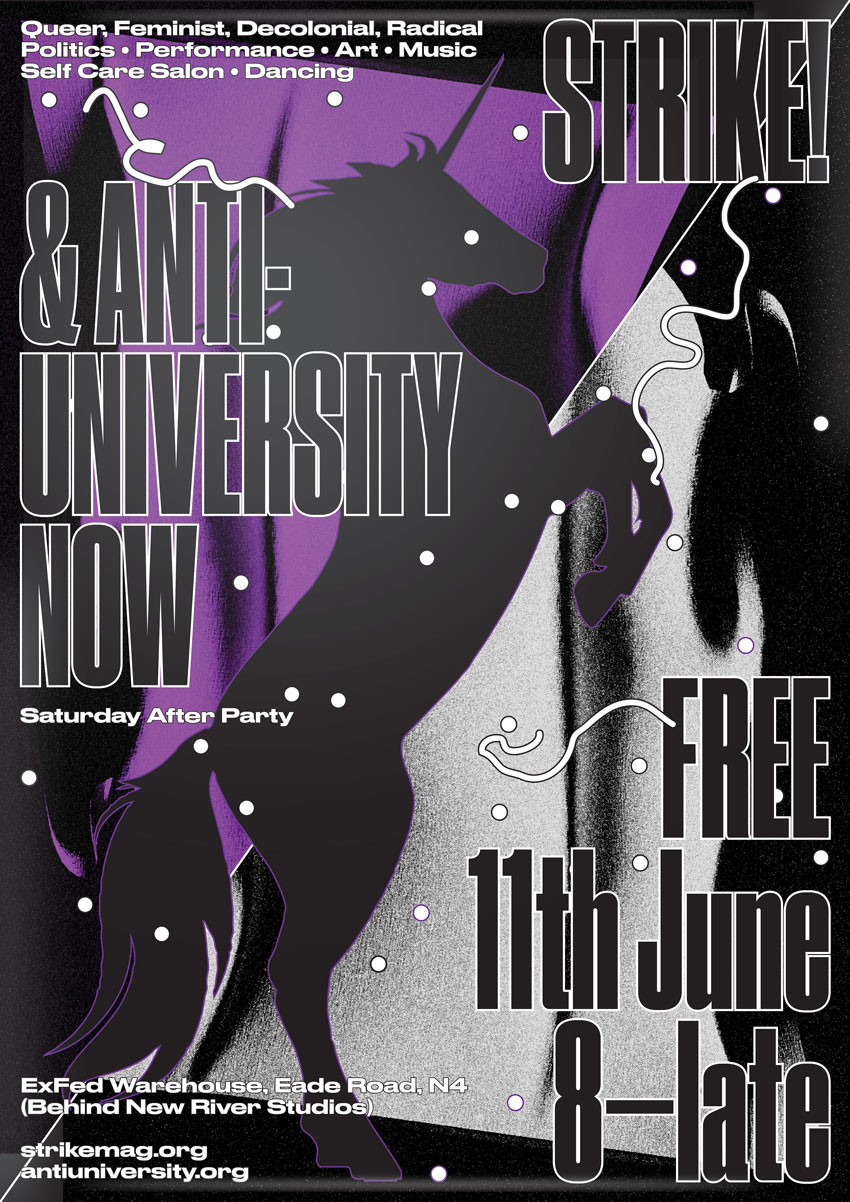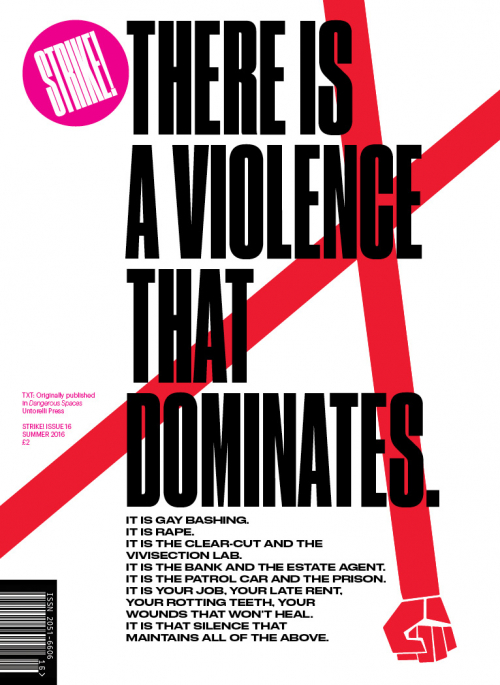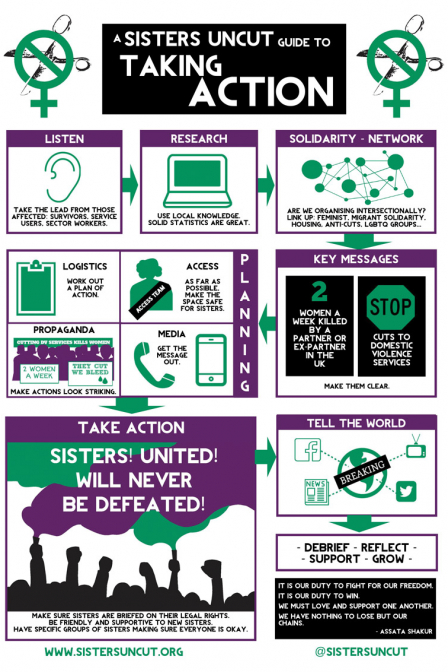Education as Direct Action: Antiuniversity Now

In November 2015 around 1,200 people attended the first Antiuniversity Now festival.
Over one weekend, they took part in 60 public events, self-organised by about 90 people in libraries and galleries, pubs and private homes, from St Ives to Sheffield.
The hosts weren't experts or academics and the guests didn't have to pass any exams or pay a fee. There was no application process and no one was refused entry. The programme included sessions on DIY Feminist Practice, Urban Mining (of your phone), Radical Archiving and Art Education post New Labour as well as experimental sound performances, a participatory reading of the Greek play Lysistrata, a three-sided football match and a walk around Sizewell 2 nuclear power station.
While everyone worked under the Antiuniversity Now banner, most people didn't know each other and we, the three co-organisers, never met most of the hosts. In fact, we never imagined that so many people would even hear about our project, nevermind put all that time and effort into planning so many events.
The project started from a question—what would an Antiuniversity look like today? The three of us had recently learned about the 1968 Antiuniversity of East London through a Hackney Museum research project and wanted to explore the potential relevance of the historical movement to the current state of higher education.
In 1968 young people across the world protested against a stagnant and violent political system and a conservative education system which reproduced out-of-date knowledge with no critical reflection, ignoring the real concerns of young people. From the Black Panthers and the Anti Vietnam War movement in the US to students and workers occupations in France, from Mexico to Prague, a generation was fighting against racism, sexism, colonialism and state violence. A new world order called for a new academic order.
Very much a product of its time, the original Antiuniversity was set up in February ‘68 in Shoreditch, then a working class neighbourhood and now a fully gentrified part of London. It was led by American academic Joseph Berke who, Inspired by the Dialectics of Liberation conference held the previous year at the Roundhouse in Camden, gathered a group of academics, writers and artists to establish a new type of institution.
The Antiuniversity offered courses by leading figures of the time such as CLR James, John Latham, Juliet Mitchell, RD Laing and Stuart Hall, in a format designed to break the structures forced by institutions such as schools and universities, providing ‘an alternative to the contemporary university with its “battery student”, gobbling information fed to him to produce eggs for the system’. The brochure lists courses such as Sociology of Guerilla (John Cowley), Black Power (Obi Egbuna), The Politics of Small Group (Leon Redler) and Dragons (Francis Huxley). Membership was £8 and the newspaper ad indicated ‘no formal requirements’.
It lasted the whole of nine months and—apart from the prospectus—not much is known about the courses that actually took place there and the number of students attending them. The staff and visiting lecturers somehow all fell out, the administration was chaotic and a lack of funding eventually led to their eviction from the building on Rivington Street.
Despite everyone's best efforts, the Antiuniversity did not revolutionise academia and created a new world order, but it left a legacy.
In the 50 years that followed, higher education changed beyond recognition. Mainstream institutions now regularly offer courses in Postcolonial Studies, Queer Theory or Transcultural Practice, but while the (still predominantly white and Eurocentric) curriculum officially allows for a wider range of voices to be heard, universities themselves morphed into commercial spaces, part of the same system that their research departments so fiercely criticise. Our political culture swallowed counterculture and hollowed it out.
The tripling of university fees, the demise of education and maintenance grants and closure or privatisation of foundation courses are all part of a strategy to exclude working class people from gaining an education or, at the very least, burden them with crippling debt for the rest of their lives. A new Tory plan to criminalise people who don't repay student loans will make higher education a safe option only to the most privileged.
In the name of growth and under the banner of austerity—a mutated form of colonial violence turned inwards, often targeting the very same victims—universities become part of a calculated and particularly cruel campaign to crush dissent through the financial submission of an entire generation.
Academia is implicated in other forms of neo-colonilaism: the relentless building of accommodation for higher fee-paying international students results in the displacement of working class people from city centres. The introduction of the EBacc, diminishing public funding and precarious working conditions in the cultural sector, which actively work to discourage poor students from taking art or humanities degrees, will result in the absence of working class voices from British culture and media.
These scenarios are, of course, not the fault of universities—they are the result of nearly 40 years of neoliberal capitalism and its inherent and manifold violence. Could higher education in 2015 still become part of the solution instead of propagating the problems? Can the classroom—improvised, self-organised, informal, spontaneous—replace the factory gates as a site of mobilisation?
We set it up the Antiuniversity Now in 2015 to challenge academic and class hierarchy through an open invitation to teach and learn any subject, in any form, anywhere.
It is a collaborative experiment to revisit and re-imagine the 1968 Antiuniversity in a programme of events inspired by the ideas, people and activities of the Antiuniversity of East London.
Through the realisation of self-organised spaces for sharing knowledge, we hope to encourage an alternative to the £9k a year degree, enable spontaneous sites for resistance and mobilisation and challenge the wider system of marketisation, marginalisation, austerity and state violence.
Unlike the original Antiuniversity, we have no permanent base, no regular staff or a list of students and no desire to start a new institution. In fact, the project aims to de-institutionalise education and give anyone the opportunity to share—through teaching or learning and sometime both at the same time—the kinds of skills and types of conversations that ‘proper’ universities no longer offer.
We are, of course, not the first ones to come up with this model. Free schools, occupied classrooms, reading circles, peer education, skill swaps… we are indebted to many who have done it before us and who are still running projects all over the country. In 2015 we collaborated with groups such as Radical Education Forum, Open School East, Alt MFA, Nomad Art School, Kingdom and others and we continue to work with a growing number of people and organisations who enact revolutionary models through collective teaching and learning. The number of radical groups operating in the UK today is staggering, and in itself an indication that we are nearing boiling point.
However, unlike most other groups who devote time and resources to developing radical content—writing texts and publishing magazines, organising discussions and leading demonstrations—the Antiuniversity exists only as a platform. We don't organise events or programme activities. What we do is offer a framework and a context for people to imagine, organise and run their own events
When recently asked to describe the Antiuniversity we found ourselves using words such as an enabler, a facilitator, a catalyst. Definitely not a curator.
In practical terms the Antiuniversity is a loosely organised team of three: Emma Winch, Alex Brown and Shiri Shalmy, who all work in one capacity or another in the art and heritage sector. It is an unconstituted, unfunded and unaffiliated organisation and we constantly collaborate with others.
The Antiuniversity festival 2016 (taking place on 9-12 June in venues all over the country) started from an open call published on www.antiuniversity.org (registration closed 10 April). Everyone was invited to develop and organise learning activities which can take any form: a lecture, a round table discussion, a gallery tour, an interruption, a presentation, a screening, a public reading, a practical workshop, a walking tour…and cover any subject. The programme is published on the Antiuniversity website and promoted on social media, through partner organisations, host venues and the organisers.
Events are entirely free to attend (with the occasional contribution towards materials when relevant) and there were no criteria to take part. Everyone's a teacher, everyone's a student, everyone's welcome.

Get it here
